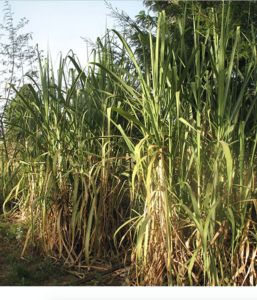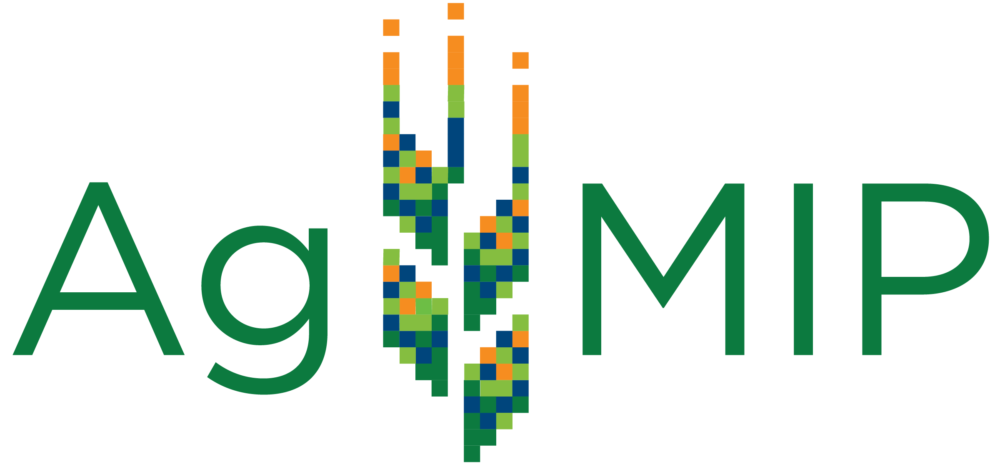Goals:
 Bioenergy-crop models will be incorporated into the AgMIP suite of assessment and MIP exercises through the development of new field-scale crop model improvement pilot projects and through inclusion in the Global Gridded Crop Model Intercomparison (GGCMI). The objective of this initiative is to develop protocols for intercomparison and improvement of crop models for existing and emerging biomass and bioenergy crops. Focus will include enhancing the predictive capabilities for bioenergy crop production and bioproducts, and providing multi-model assessments of the potential of bioenergy crop production and feedbacks with climate change mitigation and impacts.
Bioenergy-crop models will be incorporated into the AgMIP suite of assessment and MIP exercises through the development of new field-scale crop model improvement pilot projects and through inclusion in the Global Gridded Crop Model Intercomparison (GGCMI). The objective of this initiative is to develop protocols for intercomparison and improvement of crop models for existing and emerging biomass and bioenergy crops. Focus will include enhancing the predictive capabilities for bioenergy crop production and bioproducts, and providing multi-model assessments of the potential of bioenergy crop production and feedbacks with climate change mitigation and impacts.
Objectives:
- Identify current bioenergy crops models and simulation capabilities.
- Identify reference data sets and establish standards for bioenergy-crop model evaluation and benchmarking
- Develop model parameters and crop coefficients for bioenergy crops in existing models.
- Develop/encourage new models for advanced bioenergy production feedstocks.
- Produce multi-model assessment of the relative production potential of various biofuel crops in various areas and land-types (e.g. existing crop and pasture vs. marginal lands).
- Project the impacts of bioenergy crops on land use change and food security (in cooperation with the global AgEcon team)
- Project the impacts of climate change on bioenergy crop production.
Overview
Bioenergy crops will be grown in both traditional and non-traditional areas around the world and require intensive and longitudinal experimental studies to evaluate production potential and environmental and economic consequences. Crop models can reduce the costs involved in conducting field experiments by identifying key treatments and by extrapolating results to other regions and environmental conditions. We currently lack mechanistic models of many bioenergy crops and our intent is to encourage development of new bioenergy crop models by providing data sets from growth chamber, greenhouse, and field experiments. Models developed would answer questions such as the what? when? and where? for bioenergy production in current and future climates. Bioenergy crop models will serve as decision support systems for producers, industry, researchers and policy makers and also act as teaching tools/aids
Next Steps
- Survey of interests, specific crops, participating models, and available data
- Identify and prepare experimental data sets for model calibration and MIP simulations
- Organizational meeting during AgMIP meeting Nov 1-2 in Long Beach, CA (weekend prior to ASA/CSA/SSSA)
Candidate Crops:
Lignocellulosic: Switchgrass, Sorghum, Miscanthus, Mixed grasses, Energycane, Napier grass Woody coppice (Willow, Poplar)
Sugar crops: Sweet sorghum, Energy beets, Sugarcane*
Oilseed Crops: Canola, Camelina
Others: depending on interest
*AgMIP-Sugarcane is coordinated by Peter Thorburn
Crop Models (as of 06/2014): ALMANAC, pSIMS (DSSAT, APSIM, and CenW), APSIM, DSSAT, BeWhere, BioCro, EPIC, LPJmL, Ecosystem Demography v2, CLM, SiB2
AgMIP-biofuel: Bioenergy-Crop Model Intercomparison and Improvement Project Initiative will be led by Gopal Kakani and David LeBauer.
